What are Aussie investors' biggest questions as volatility returns?
Investors are accepting the hard truth that interest rates are likely to remain higher for longer, tempered slightly by another pause from the RBA earlier this month. This is spurred by the US Federal Reserve's strengthened rhetoric on higher interest rates for longer which prompted widespread selling by bond investors that pushed yields higher.
Given the US comprises more than half the global bond market, this naturally flows onto Australia, where the RBA has indicated rates are also likely to remain elevated longer than previously expected.
On the back of this, both the S&P 500 and the S&P/ASX 200 fell around 5% between mid-September and early October. Though they have recovered some ground since then, the market remains highly volatile.
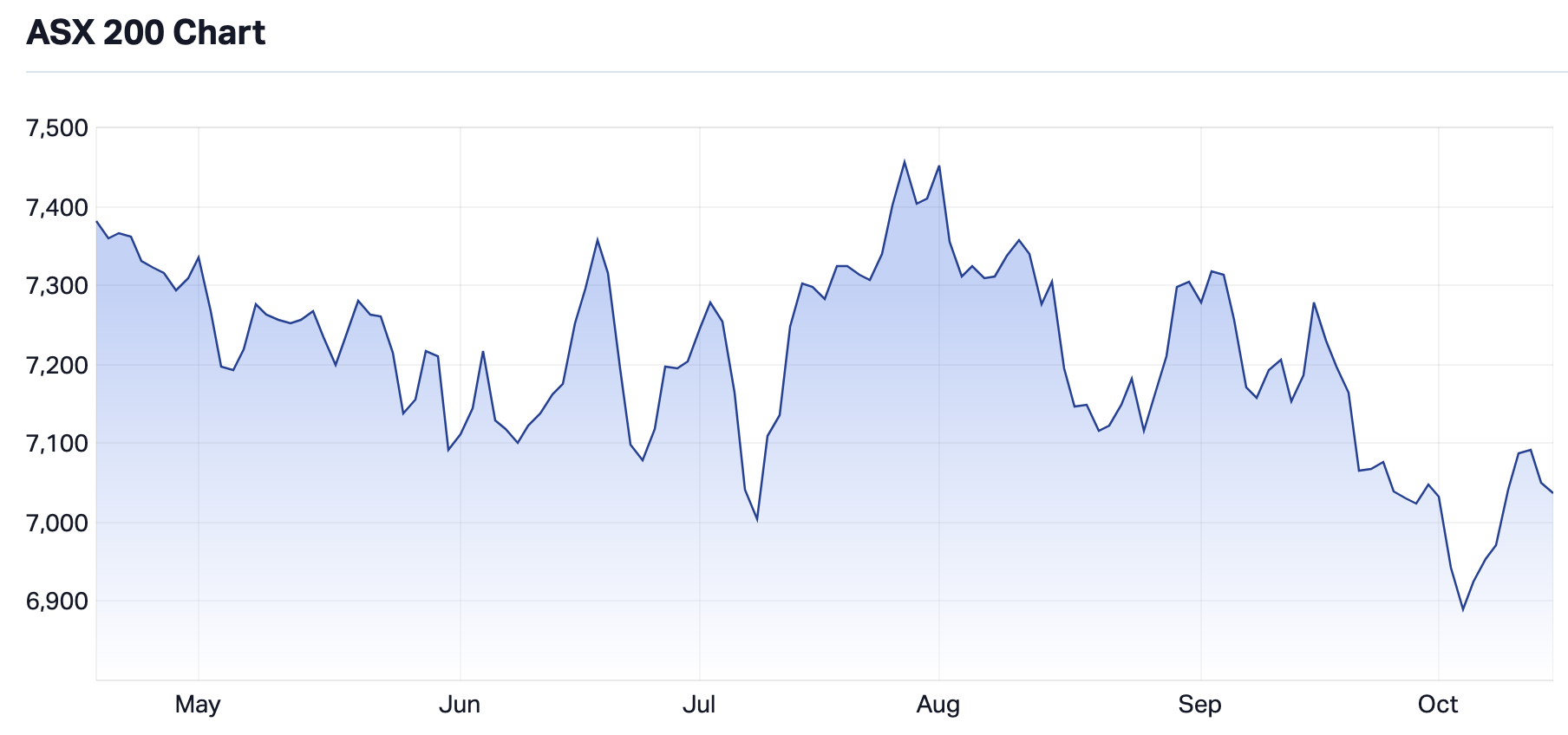
In this environment, how are investors reacting?
In the following, Hugh Robertson from wealth management firm Centaur Financial Services tells us what he’s hearing on the ground.
What are Australian investors focused on currently?
Some of the most common questions from Robertson's clients are:
- What will earnings look like next year?
- Has fixed interest peaked?
- Is there going to be a global recession?
- What are the geo-political risks for investments?
- What is happening with the US political system, given we have an election next year?
Robertson believes company earnings will be subdued in 2024 but will recover in 2025. He regards fixed interest as being at or near its peak but expects rates may stay longer than initially anticipated.
“Global recession looks to be avoided which is a relatively new narrative. Geopolitical risks are something we must consider more so than in years gone by. And the US election next year will be a circus, with a small number of votes deciding who will win,” Robertson says.
Is cash king?
Robertson and his team are fielding many questions about portfolio positioning currently, particularly from clients unsure how to approach the Growth versus Defensive asset divide. The most defensive asset of all, cash, is offering the most attractive returns it has had in several years. This is too good to resist for many investors.
“They can now generate a good return on their money for sitting on the investment sidelines. We still would not recommend too high an allocation to cash as the ‘real’ return is still relatively low,” Robertson says.
Unlisted assets and other Alternatives are also appealing.
Within the equity portion of portfolios, investors are currently favouring “blue-chip” larger stocks above smaller companies. But this is itself a concern, explains Robertson.
“There needs to be some caution on market cap indexing currently, as almost 50% of the index invests in the top 10 companies in the ASX 200. A more equal-weighted smart beta approach is worth considering,” says Robertson.
Some of the US companies that are core reasons for the above concern – including Alphabet (NYSE: GOOG), Microsoft (NASDAQ: MSFT) and others of the “magnificent 7” – have underpinned the better-than-expected returns of the world’s biggest market in the last year.
What should investors focus on currently?
“When the facts change your views should change,” says Robertson.
While interest rates are higher than they have been, they are actually at a long-term average level. What this means for investors is that:
"Fundamentals matter again – from valuing stocks, to the trade-off between growth and defensive assets."
“There is no set-and-forget strategy. Each asset class needs to be reviewed,” says Robertson.
Some of the main things investors need to consider in building a well-constructed, purpose-led, portfolio are:
- income needs,
- growth requirements,
- asset class allocation,
- volatility, and
- taxation.
“That will see you through the current volatility. Investors also need to understand that volatility is normal and to tune out the noise,” Robertson says.
“If the market goes down, that is an opportunity to buy more shares on sale, and if the market goes up that is simply an opportunity to sell and make a profit. If an investor has this perspective, they can enjoy satisfactory investment outcomes over the longer term.”
How has sentiment shifted on technology and small-cap stocks?
Robertson describes the rush into tech stocks on the back of the buzz around AI as “fools gold” and reminds him of cryptocurrency just a few years back.
“We are working off a higher discount rate, inflation is stickier than even the US Federal Reserve thought, and these stocks went up between 50% and 60%,” he says
NVIDIA (NASDAQ: NVDA) is up over 300% in the past 12 months on a price-to-earnings ratio of 113. Its market cap is about half of the entire Australian Stock Market.
A prominent local example is ASX market darling Wisetech Global (ASX: WTC), which hit a 52-week high of $88.69 (PE of 105) in August.
“It has retreated down to $64.80 (PE 94.36) in the past eight weeks. This is a reminder that investing is risky. As rates continue to stay higher for longer, which is a relatively new narrative, these stocks should come back down,” Robertson says.
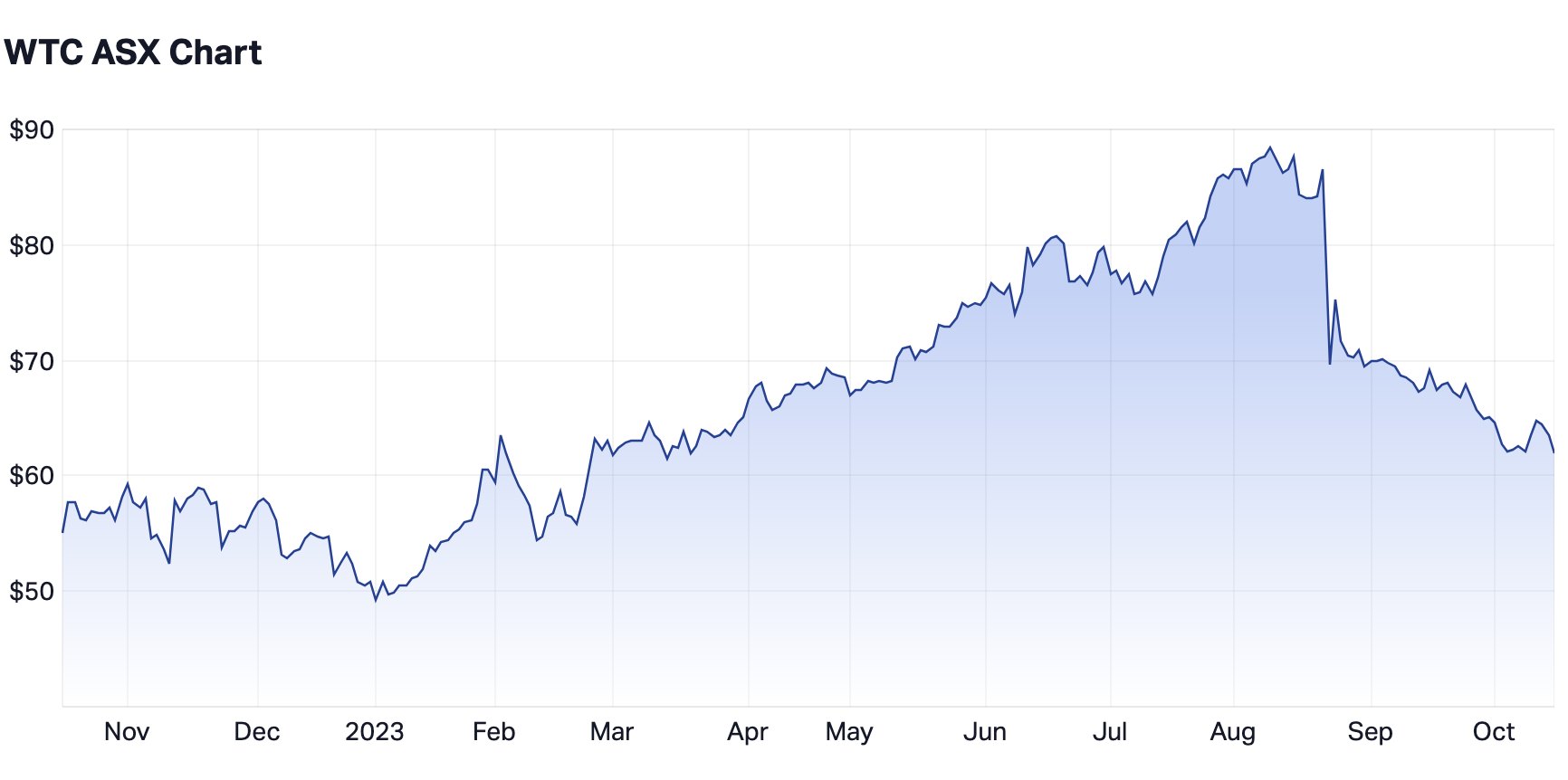
Robertson argues that the sentiment driving some of the loftier valuations is currently not backed by investment fundamentals.
“I believe other sectors are just too compelling, where the valuations are at or even below long-term average PE ratios,” Robertson says.
“The higher the PE ratio, the higher the fall – and the lower the P/E ratio the lower the fall. In this market, I think that is a relevant analogy to approach your investing opportunities: look for the lower cliffs as they are less risky.”
Which sectors are you favouring in this environment and why?
Robertson notes that investors typically favour the Consumer Discretionary, Retail and Financial sectors during periods when inflation is high but falling, “with a caveat that you would want low beta or low volatility stocks.”
He believes the current period favours an active, fundamentals-based equity investing approach that considers:
- current financials and future growth,
- low levels of debt, and
- sound management teams.
“In each sector, there is always going to be a ‘winner”, so try to find those that can create an economic moat,” Robertson says.
“Such companies have the best opportunity to take advantage of current economic uncertainty and come out the other side with an even larger business, and happier shareholders.”
Two top sector picks
Healthcare is the standout sector for Robertson, based on its valuation, which is down just under 10% in the 12 months to 16 October.
“It’s oversold, pandemic issues have worked their way through the system, and this sector is somewhat immune to the prevailing interest rate environment relative to other sectors, so I think in a flight to safety, it could be more resilient than other sectors,” Robertson says.
“CSL (ASX: CSL) is down 14.82%, ResMed (ASX: RMD) is down 35.25%, Ramsay (ASX: RHC) is down 10.30% and these are worth reviewing as opportunities. These are well-respected businesses that may have been oversold,” Robertson says.
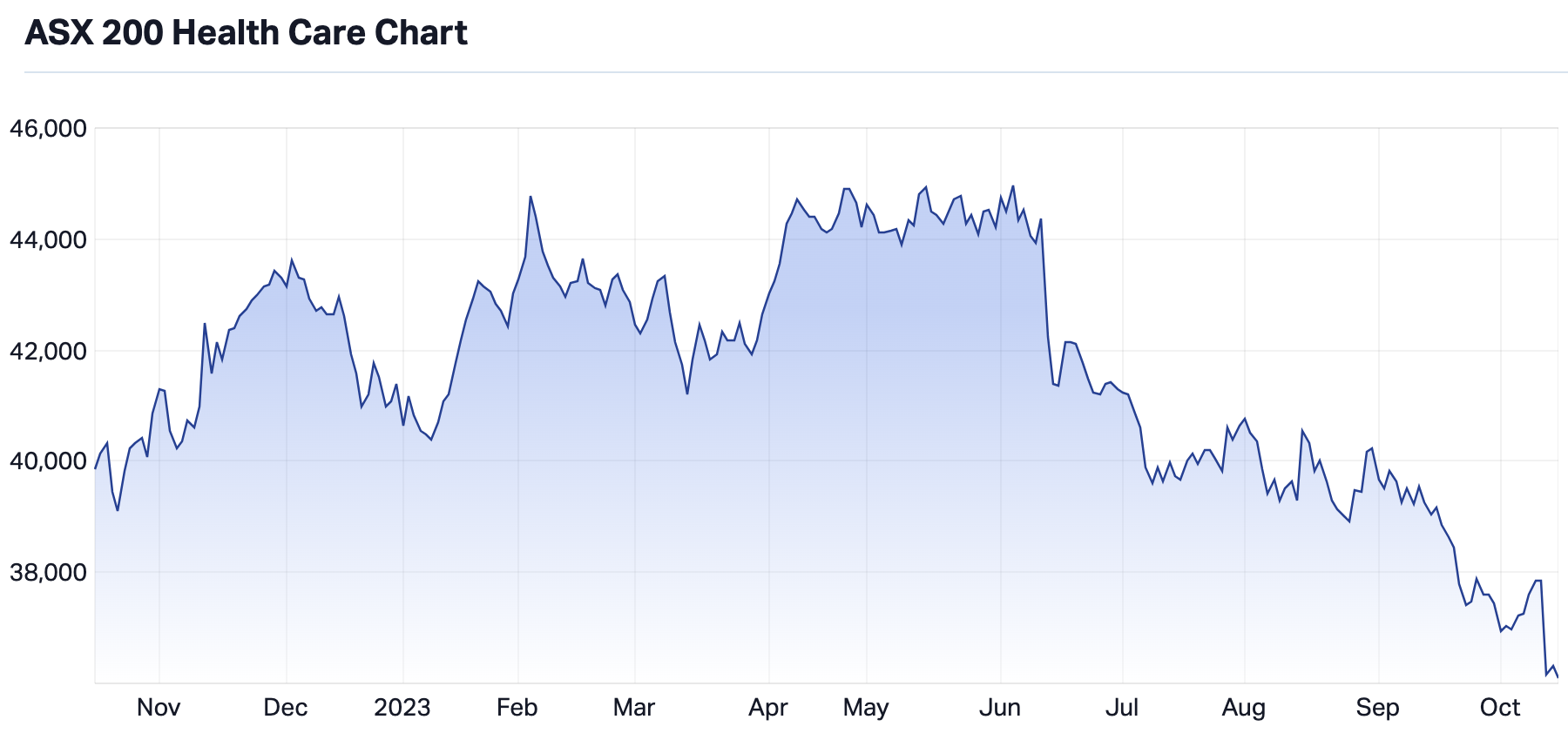
What about other defensive sectors?
Consumer Staples is another of Robertson’s preferred sectors in tougher economic periods, though he emphasises there’s wide variation between companies in the sector. The importance of stock selection in this domestic sector is particularly important because the market itself isn’t expanding: “It is a fight for customers’ wallet share in this space,” Robertson says.
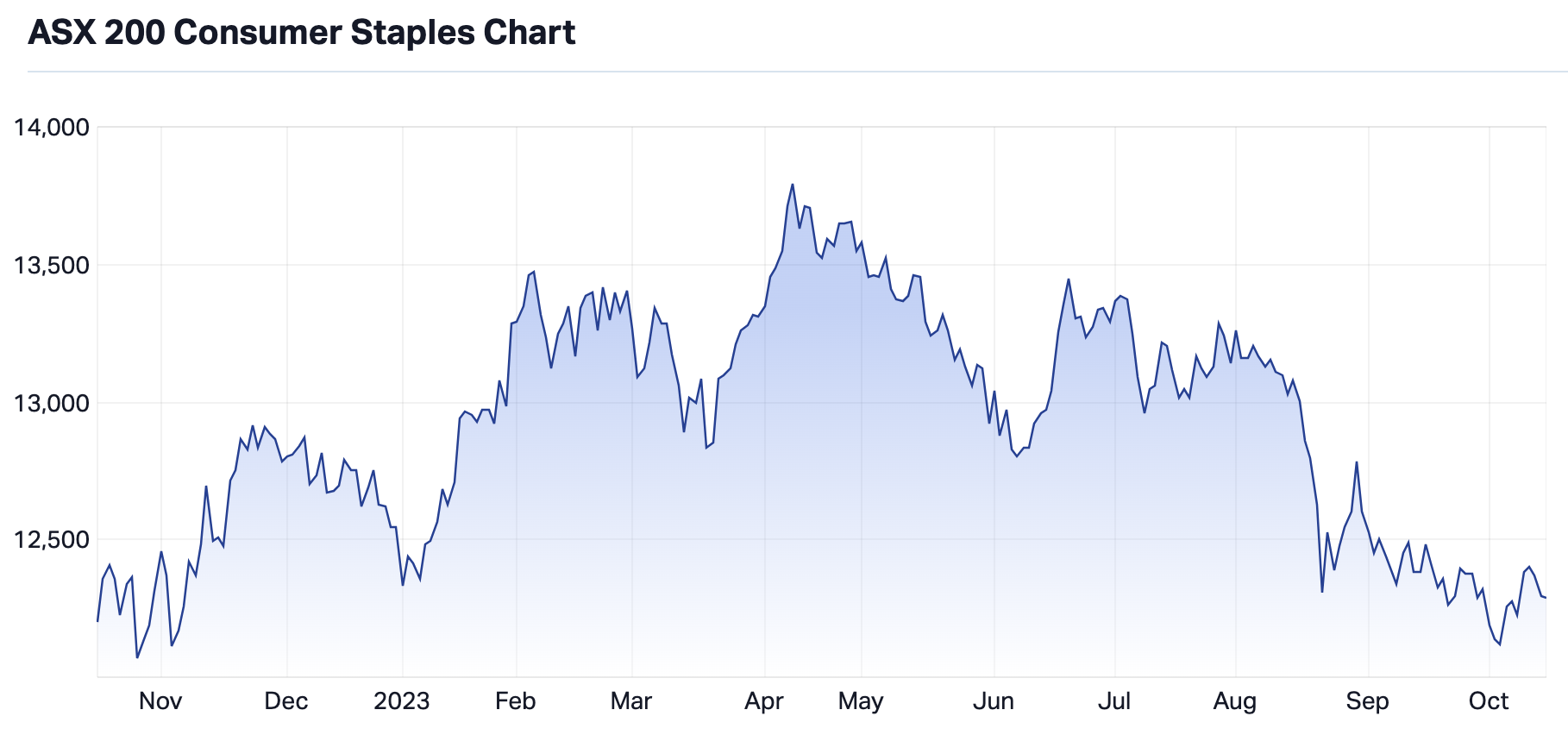
“It’s hard for both Coles (ASX: COL) and Woolworths (ASX: WOW) to win at the same time when dollars are shrinking and they are competing for the same customer. So, you need to be selective as to which one you buy,” Robertson says.
“While the discretionary sector may underperform due to less money in people’s hands once we feel the impact of rising home loan repayments, staples will still earn revenue albeit there may be a margin squeeze from competition, as well as inflation for their cost of goods."
ASX Utilities is the top-performing sector over the past 12 months, returning 31.85%, alongside strong dividends from several companies in the space.
But big challenges loom for many in the space who are at risk due to the energy transition and possible political interference, explains Robertson.
“It’s more of a watch this space investment, albeit I concede you will get good dividends as they are not investing a lot of R&D now due to the political uncertainty surrounding the energy transition.”
What sector are you avoiding?
Technology is on Robertson’s black list currently because of what he regards as excessive valuations.
“I may be looking at interesting individual companies that fit a thematic going forward, or have a number one position in a growing industry or taking market share. But there are other opportunities elsewhere that have a far higher and more probable payoff, in my opinion.”
Two stocks to watch
Endeavour Group (ASX: EDV) is a business that I like under the narrative of a higher for longer interest rate cycle. It has a PE of 16.89, a dividend yield of 2.81%.
The owner of Dan Murphys, pubs and gaming machines, Robertson believes EDV should weather the tougher economic climate.
“Revenue has been growing and they are the number 1 in their industry, which gives them an economic moat over their competition. It is at the lowest PE over the past three years,” he says.
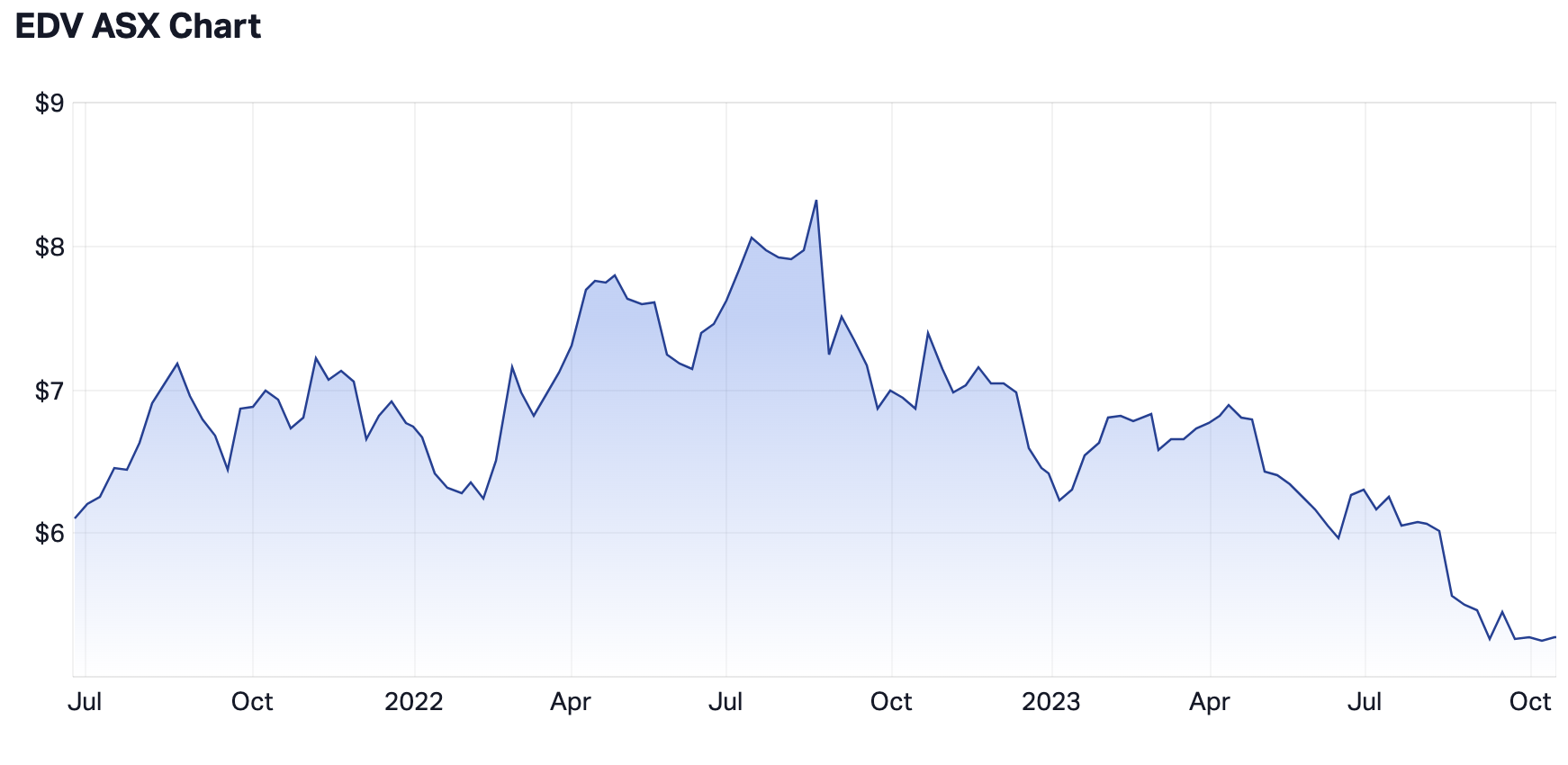
ResMed (ASX: RMD)
The depressed valuation of this medical devices company makes it compelling currently, says Robertson.
“It has been sold down due to the success of weight loss drugs and the perception that this will make their sleep apnea product less relevant. The PE ratio has gone down from 36.42 on 2 August to 23.64 on 11 October - its lowest in the past three years.”
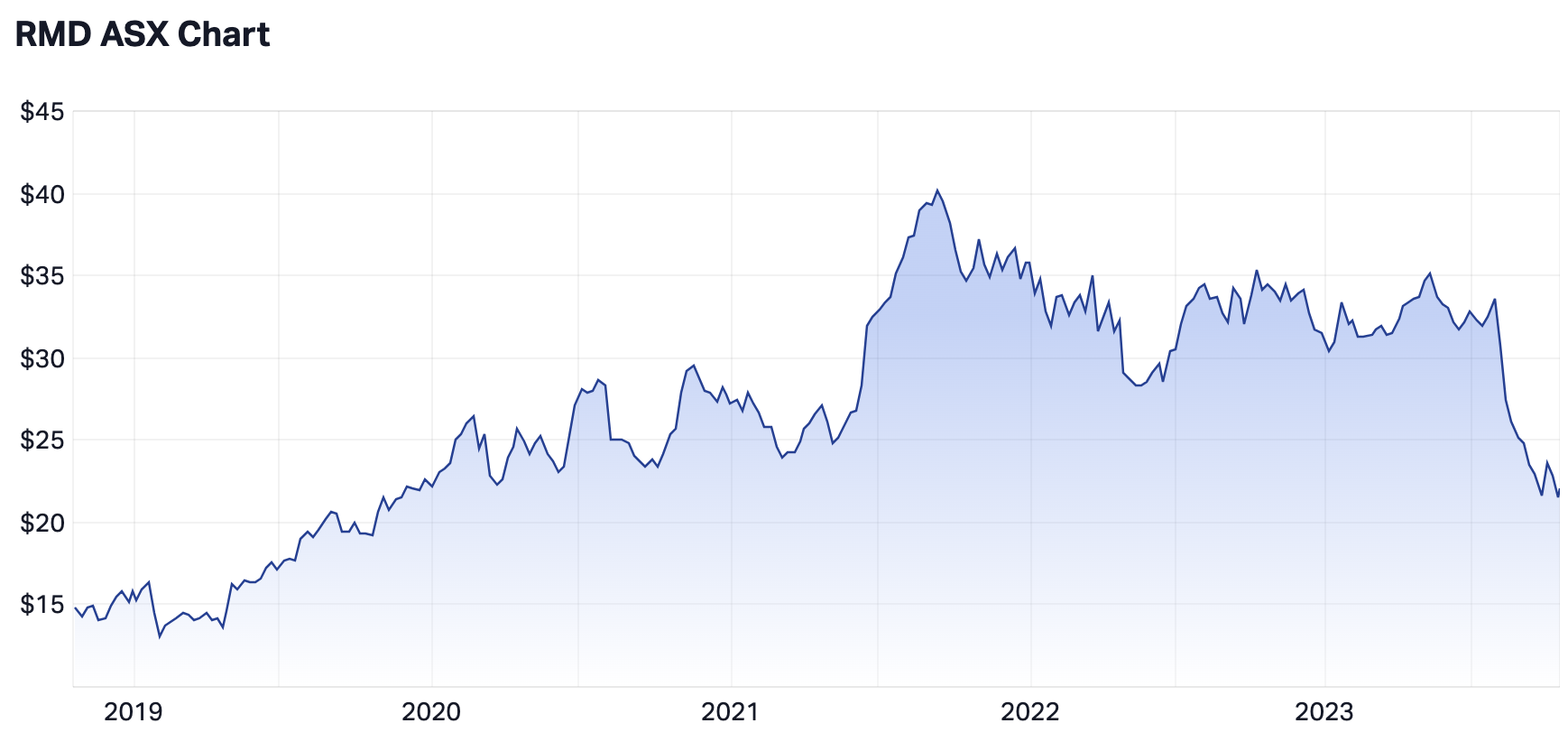
What's your burning question?
Drop us a line in the comments to let us know your biggest questions about markets currently. Better still, let us know what stocks you're buying (or selling) amid persistent uncertainty.3 topics
10 stocks mentioned

